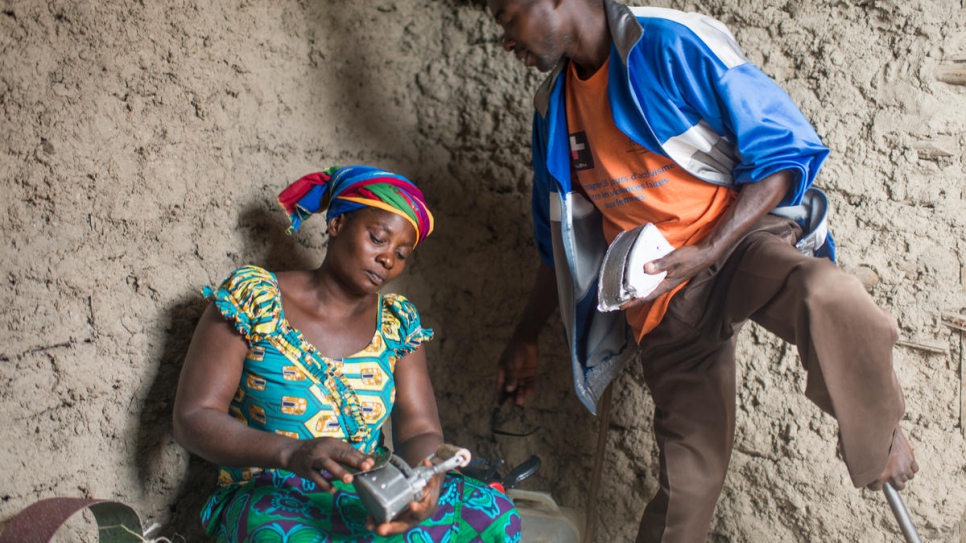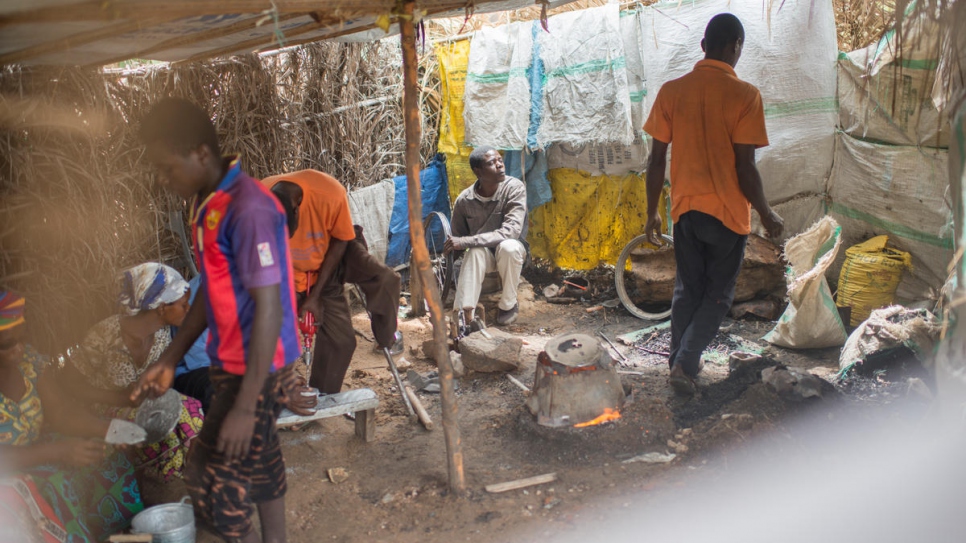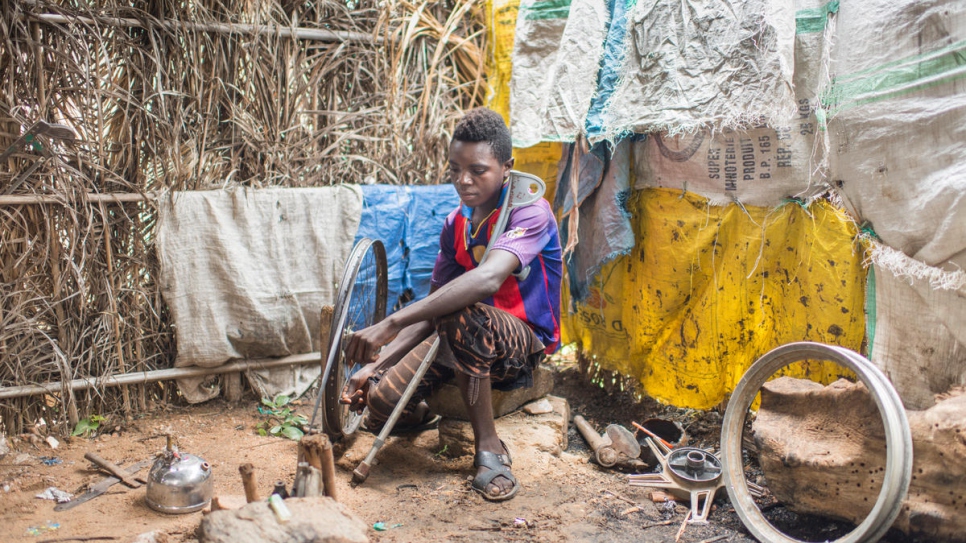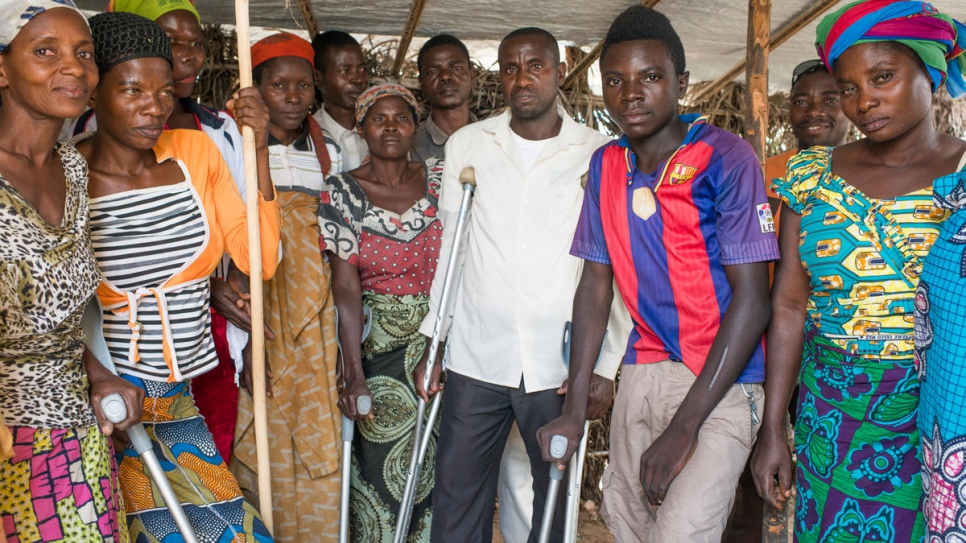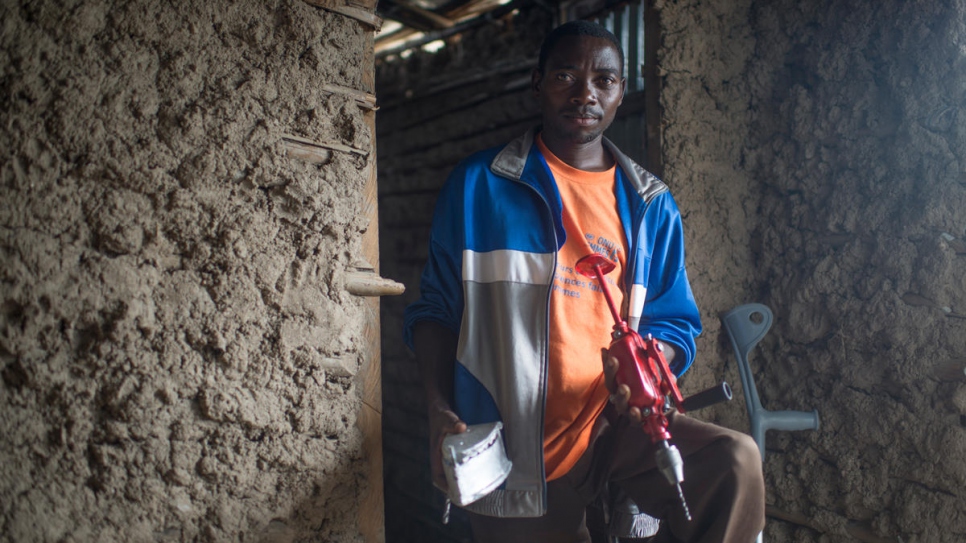Burundian refugees in Congo forge a better future
Refugees living with disabilities have set up a workshop where they turn scrap metal into household items.
Dorothée Nahayo, 45, fled the conflict in Burundi. With a paralysed leg and alone to fend for her five children, she works at an association called "Dufashanye" that turns scrap metal into household items.
© UNHCR/Colin Delfosse
When her neighbours ran from the fighting, Dorothée Nahayo did not think she would make it. With a paralysed leg and walking with a crutch, she was an easy target for bullets.
“I put my belongings on my head. This was war! I was afraid," says Dorothée, 45. Against all odds, she made it across the border to Lusenda refugee camp in the Democratic Republic of the Congo.
In the camp, hosting more than 30,000 Burundians, she is one of 754 refugees living with a disability, making life in exile even more difficult.
She does not know where her husband is. He may have been killed, she says. With two adult children and three younger ones, she has to fend for herself.
“I have learned something here."
Now, two years since she fled, things have taken a turn for the better. “I have learned something here,” she says with a smile, as she applies abrasive paper to a brand new cooking pot.
To escape poverty, handicapped Burundian refugees founded the association Dufashanye, meaning “Mutual Support” in Kirundi, the language spoken in Burundi. The 32-member association set up a workshop in Lusenda refugee camp in South Kivu Province in the Democratic Republic of the Congo and helps refugees with disabilities turn scrap metal into household items.
In a makeshift hut, they melt metal in a pan over a fire and pour it into clay moulds. Cooking pots of various sizes, flat irons and even waffle irons are cast. These items are then sold and provide refugees like Dorothée with enough money to buy clothes and food. “In Burundi, I did not know how to make cooking pots. I earn some money here and this helps us to move on in life.”
UNHCR, the UN Refugee Agency, has provided some financial support to handicapped refugees and other people with special needs. On a visit to the region this April, UN HIgh Commissioner for Refugees Filippo Grandi said refugees living with disabilities faced even greater challenges than those faced by others and said all action to support must take this into account.
"We dream of leaving a legacy behind for disabled people in this camp."
However, there is more to be done. Medical services for a start, says Mattias Nzorigendera, 38, the association's president. “Some of the handicapped still have grenade parts in their bodies, but the health centre cannot treat them.”
Earning an income is another challenge, he continues. “It is more difficult for the handicapped to find jobs. But through our association, we have found work.”
Nevertheless, the small successes of the association have given him and the other refugees living with disabilities reason to hope.
“We dream of expanding and of leaving a legacy behind for disabled people in this camp. So that everyone will be able to lift themselves up from poverty.”

